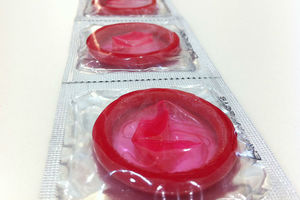UKHSA urges those with new or multiple sexual partners to get tested after gonorrhoea cases resurge
Gonorrhoea cases have resurged in England since the easing of coronavirus (COVID-19) restrictions in 2021.

Provisional data published today indicates that gonorrhoea diagnoses from January to September 2022 were 21% higher than those reported over the same period in 2019. Data also indicates that during the first 9 months of 2022, gonorrhoea cases were higher than those reported over the same period in each of the last 3 years.
UK Health Security Agency (UKHSA) is reminding people to wear a condom and get tested regularly if having sex with new or casual partners. Testing is free and discreet and you should get tested even if you are not showing any symptoms.
The data shows that the total number of gonorrhoea diagnoses from January to September 2022 (56,327) was 21% higher when compared to the same period in 2019 (46,541), the year when the highest number of diagnoses was reported.
Young people aged 15 to 24 years remain most likely to be diagnosed with sexually transmitted infections (STIs) due to more frequent changes in sexual partners. Though STIs are usually easily treated with antibiotics, some STIs, including gonorrhoea, can have serious consequences as they can cause serious health issues such as infertility and pelvic inflammatory disease.
Typical symptoms of gonorrhoea include a thick green or yellow discharge from the vagina or penis, pain when urinating, pain and discomfort in the rectum and, in women and other people with a uterus or ovaries, lower abdominal pain and bleeding between periods.
People infected with gonorrhoea will often have no symptoms, especially for infections in the throat, vagina or rectum. This lack of symptoms makes it important to test regularly when having sex with new or casual partners.
Dr Katy Sinka, Consultant Epidemiologist and Head of the STI section at UKHSA, said:
Condoms aren’t just about preventing unwanted pregnancy; they are the main defence against STIs. If you have had condomless sex with a new or casual partner, it is even more important to get tested to detect any potential infections early and prevent passing them on to others.
You can get free condoms at your local sexual health clinic and if you’re under 25, you can also get them online.
Dr Thomas Waite, Deputy Chief Medical Officer at the Department of Health and Social Care said:
Practising safe sex and getting tested regularly is important to keep you and your sexual partners safe.
Condoms and early detection are essential in preventing and addressing the rise in cases we are currently seeing of gonorrhoea.
Many STIs including gonorrhoea and chlamydia can be diagnosed easily and treated with antibiotics. If left untreated, common STIs can lead to complications and long term health problems.
Testing is simple – samples are quick to take, can be collected at home, and sent off by post for analysis, making early detection accessible to everyone.
Dr Claire Dewsnap, President of the British Association for Sexual Health and HIV, said:
The rise in gonorrhoea cases provides an important reminder of the importance of testing for STIs and wearing a condom every time you have sex. By getting tested at least once a year, regardless of whether you’re showing symptoms, you can help minimise the risk of catching or passing on STIs when having sex. Delaying access to the right care and treatment also risks developing longer term problems which can be more difficult to address.
If you are concerned about STI transmission, sexual health clinics are on hand to help.
Previously, we have seen cases of gonorrhoea with resistance to ceftriaxone, the main antibiotic used to treat the infection. While these ceftriaxone-resistant cases remain rare, it is a reminder to all people having condomless sex with new or casual partners to get tested regularly at sexual health services to ensure prompt diagnosis and appropriate treatment.
The best way to protect yourself and your partner from gonorrhoea, HIV and other STIs is to wear a condom consistently and correctly when having sex with new or casual partners.
Regular testing for STIs and HIV is essential to maintain good sexual health. Testing is free and can be accessed through local sexual health clinics, university and college medical centres or through self-sampling kits sent discreetly through the post.
Find a sexual health clinic near you on NHS.UK.
UK Health Security Agency press office
10 South Colonnade
London
E14 4PU